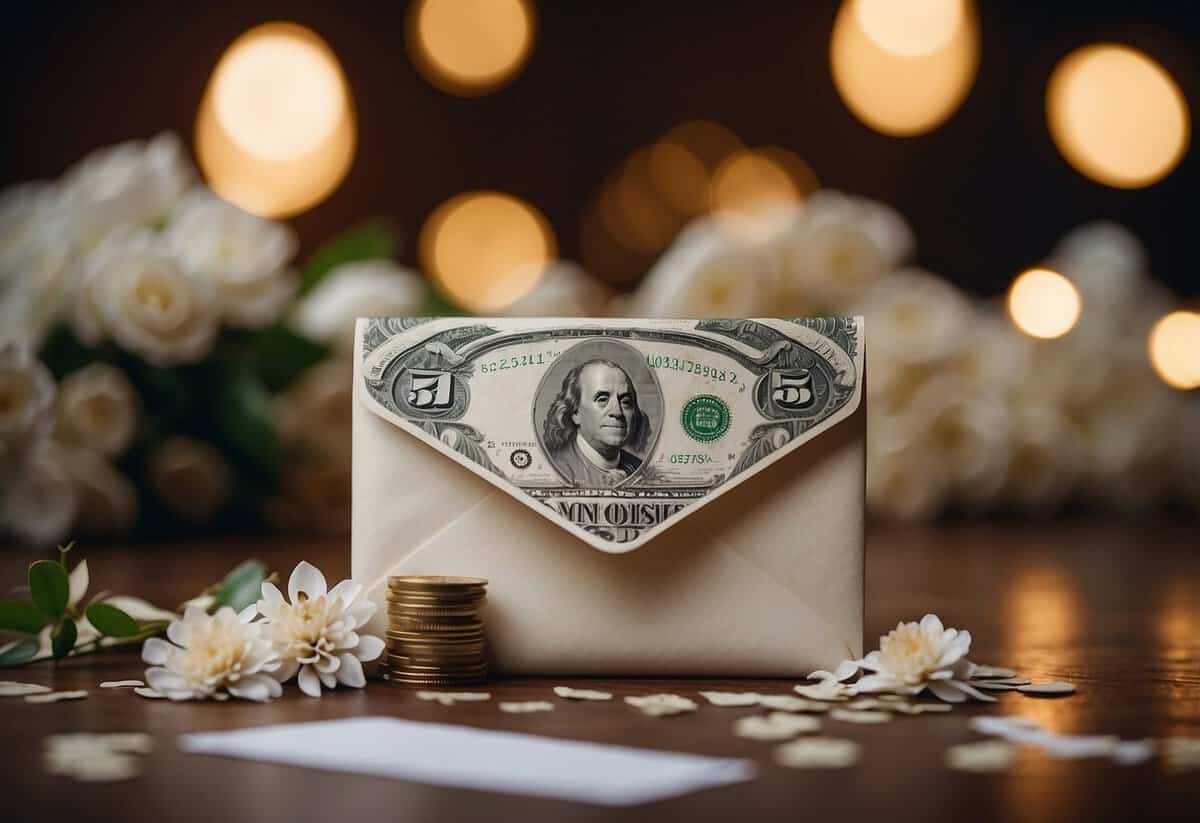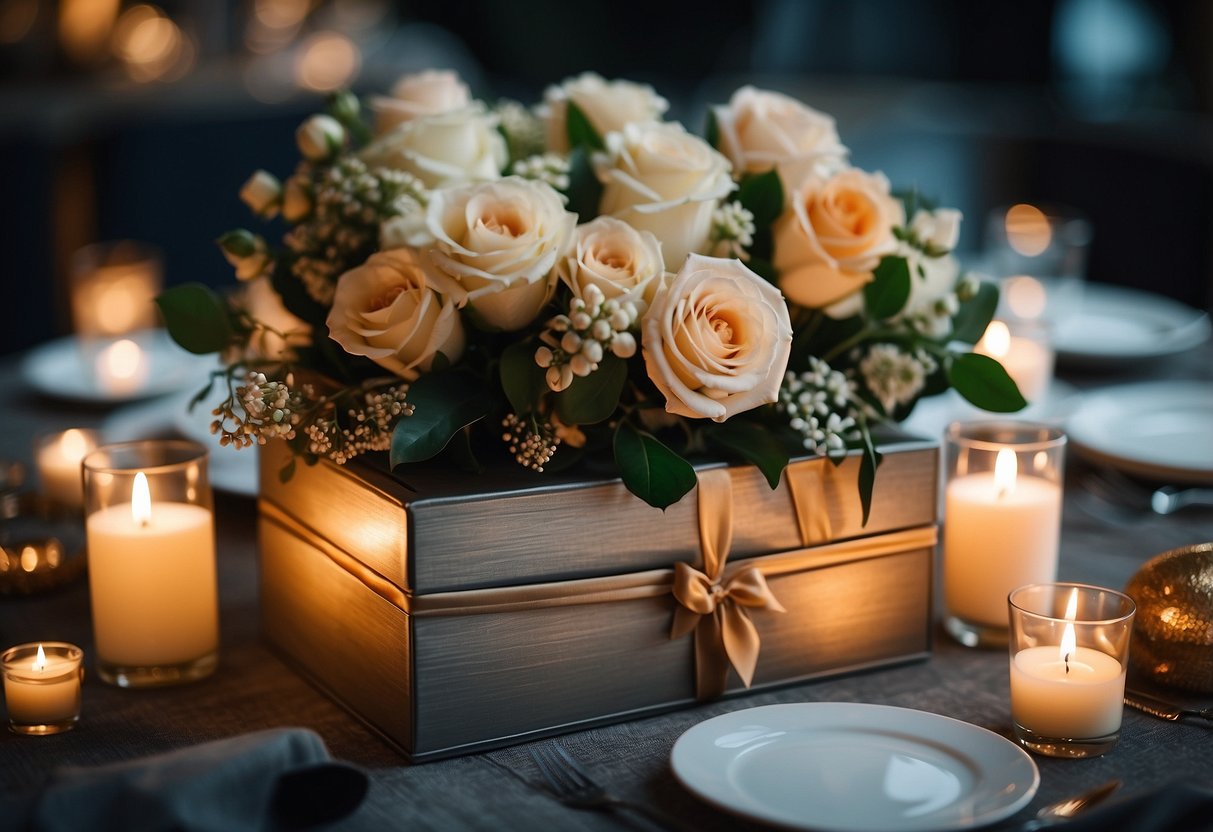How Much Money Should a Couple Give at a Wedding? Tips for Gifting
When you’re invited to a wedding, deciding how much money to give as a gift can be challenging. On average, couples in the U.S. spend around $150 to $200 on a wedding gift. However, this amount can vary based on your relationship with the couple and your budget. If you’re close friends or immediate family, you might want to lean towards the higher end or even exceed $200.

In addition to your budget, consider the wedding registry. Often, couples include various items at different price points, giving you options to stay within your comfortable spending range. If you’re unsure, selecting a moderately priced item from the registry is always a safe bet and aligns with wedding etiquette.
When thinking about wedding gift etiquette, try to give an amount that reflects your relationship with the couple. For acquaintances or coworkers, $50 to $100 is generally acceptable. For closer friends and relatives, aim for $100 to $150. Your presence and thoughtful gift will surely be appreciated, no matter what you decide to spend.
Understanding Wedding Gift Etiquette
When deciding how much to spend on a wedding gift, consider your relationship with the couple, cultural expectations, and any contributions to pre-wedding events.
Relationship with the Couple
Your relationship with the couple plays a big role in choosing the right gift. Close friends and family members typically spend more. You might feel comfortable giving $200 or more for a sibling or best friend.
For distant relatives or acquaintances, $100 to $150 is usually appropriate. If you’re attending with a date, try to cover the cost of your meals—this can be around $150. Opt for a group wedding gift if pooling resources with others fits your budget better.
Cultural Considerations
Cultural norms can guide how much you should spend on a wedding gift. In some cultures, cash gifts are preferred, while others value traditional items. In Chinese and Indian weddings, more significant sums of money are often expected.
Check the couple’s wedding website for any specific requests or guidelines. Be mindful of cultural expectations to show respect and appreciation.
Engagement and Pre-Wedding Events
Gifts aren’t just for the wedding day. Engagement parties, bridal showers, and the wedding party itself often involve extra expenses. Engagement gifts are generally smaller and more symbolic, like a picture frame or a bottle of wine.
For bridal showers, spending between $50 and $100 is typical. Participating in a group gift for larger items can also be wise. Budgeting for these additional events ensures you can contribute meaningfully without financial strain.
Financial Planning for Wedding Gifts
When planning how much to give for a wedding gift, consider your personal finances and the number of weddings you’ll attend. Balancing these factors can help you manage your budget effectively.
Budgeting for Multiple Weddings
Attending several weddings can quickly add up. Start by listing all the upcoming weddings you plan to attend. Determine how much you can realistically spend on gifts without compromising your financial situation. For instance, if you’re invited to three weddings in a year, and you plan to give $100 for each, you’ll need to budget $300.
If some weddings are for closer friends or family members, you might want to allocate more for those gifts. You could prioritize these events by dedicating a higher budget for closer relationships while keeping other wedding gifts within a set range. Always keep an eye on your overall spending to avoid financial stress.
Assessing Personal Finances
Before deciding on a gift amount, evaluate your current financial situation. Consider your monthly income, expenses, and savings goals. It’s important to give within your means. If you find that $100 per gift fits comfortably within your budget, use that as a guideline.
Remember that your gift doesn’t have to break the bank. Thoughtfulness matters more than the price tag. If your finances are tight, it’s perfectly acceptable to adjust the amount. For closer friends or family, you might aim for something like $150 to $200, reflecting the average spend stated by Wedding Wire.
Proper planning and realistic assessment will ensure you can celebrate your friends’ and family’s big days without financial strain.
Determining the Appropriate Gift Amount
Choosing the right wedding gift can involve a mix of factors including whether to give cash or a registry item, average gift amounts, and considerations for extra guests or accommodations.
Cash Gifts Versus Registry Items
Cash gifts are a flexible and practical option for newlyweds. They can use the money for a honeymoon fund, home expenses, or other needs. If you prefer to give cash, think about your relationship with the couple and your own budget. A common range is between $100 and $200.
Registry items, on the other hand, are often chosen based on the couple’s needs and tastes. Whether you pick an off-registry gift or something listed, this option can show more thought and effort. Either type of gift is appreciated but consider what would be most useful and welcome for the couple.
Average Wedding Gift Amounts
The average wedding gift amount varies but using data from The Knot, guests typically spend around $160. This figure can serve as a baseline, adjusting based on how close you are to the couple. Immediate family or close friends might spend more, while distant relatives or acquaintances may spend less.
For those attending a destination wedding, you may want to factor travel costs into your decision. It might make sense to give a smaller gift if you’ve spent a lot on travel and accommodations. U.S. News provides additional insights on these considerations.
Adjusting for Plus Ones and Accommodations
Bringing a plus one or considering accommodations can affect your gift amount. If you’re attending with a date, etiquette suggests increasing your gift to cover the cost for two. For example, a gift of $200 might be suitable if you’re both attending.
Destination weddings may require additional expenses for travel and lodging. If you have a tight budget, it’s acceptable to give a smaller gift or contribute to something like the honeymoon fund instead. Adjusting your gift amount based on these factors ensures that you’re being thoughtful and realistic about your financial situation.
Creative and Thoughtful Wedding Gift Ideas

Finding a unique and meaningful wedding gift can be a delightful way to celebrate the special couple. Whether you decide to give a personalized item or contribute as part of a group, your thoughtful gesture will always be appreciated.
Personalized and Off-Registry Gifts
Personalized gifts add a unique touch. They show that you’ve put thought into what the couple might treasure. Customized items like monogrammed towels, engraved cutting boards, or framed wedding vows can make lasting memories.
Another great idea is to create a photo book that captures their journey together. This can include pictures from their dating years, engagement, and pre-wedding events. Custom artwork, like a painting of their first home or a map of significant places in their relationship, is also meaningful.
Off-registry gifts can be tricky but rewarding. Think about the couple’s hobbies or future plans. If they love cooking, a high-quality kitchen gadget could be perfect. For travel lovers, consider a personalized travel map where they can mark their adventures.
Group Wedding Gift Strategies
Pooling resources with friends or family can help you afford a more significant gift. Group gifts can range from experiences to bigger ticket items. This approach is especially useful if you’re uncertain about an appropriate wedding gift amount on your own.
A popular idea is contributing to a honeymoon fund. Many couples appreciate the help with planning their dream trip. Other options include buying an expensive registry item that they might not receive otherwise, like a fancy appliance or outdoor furniture.
You can also consider gifting an experience. This might include concert tickets, a weekend getaway, or cooking classes. These shared memories can be much more rewarding than traditional gifts.
Using these strategies, you can ensure that your gift stands out and adds a special touch to the wedding celebration.
Post-Wedding Gift Etiquette

After the wedding, there are a few key etiquette points you should keep in mind. Sending a gift after the event is acceptable, especially if circumstances prevented you from giving it earlier.
Sending a Gift After the Wedding
If you couldn’t give your gift at the wedding, it’s okay to send it later. Aim to send it within three months of the wedding. This timeline is respectful and shows you care. You can send it directly to the couple’s home to make it easier for them.
Consider that the couple might be on their honeymoon. If so, wait until they’re back. Sending it too soon could cause issues if they’re away. Use this time to find something thoughtful they will appreciate.
Discussing your gift choice with a wedding expert can also be helpful. They can offer advice on popular and appreciated gifts. Remember, the value of your gift should reflect your relationship with the couple and your budget.



